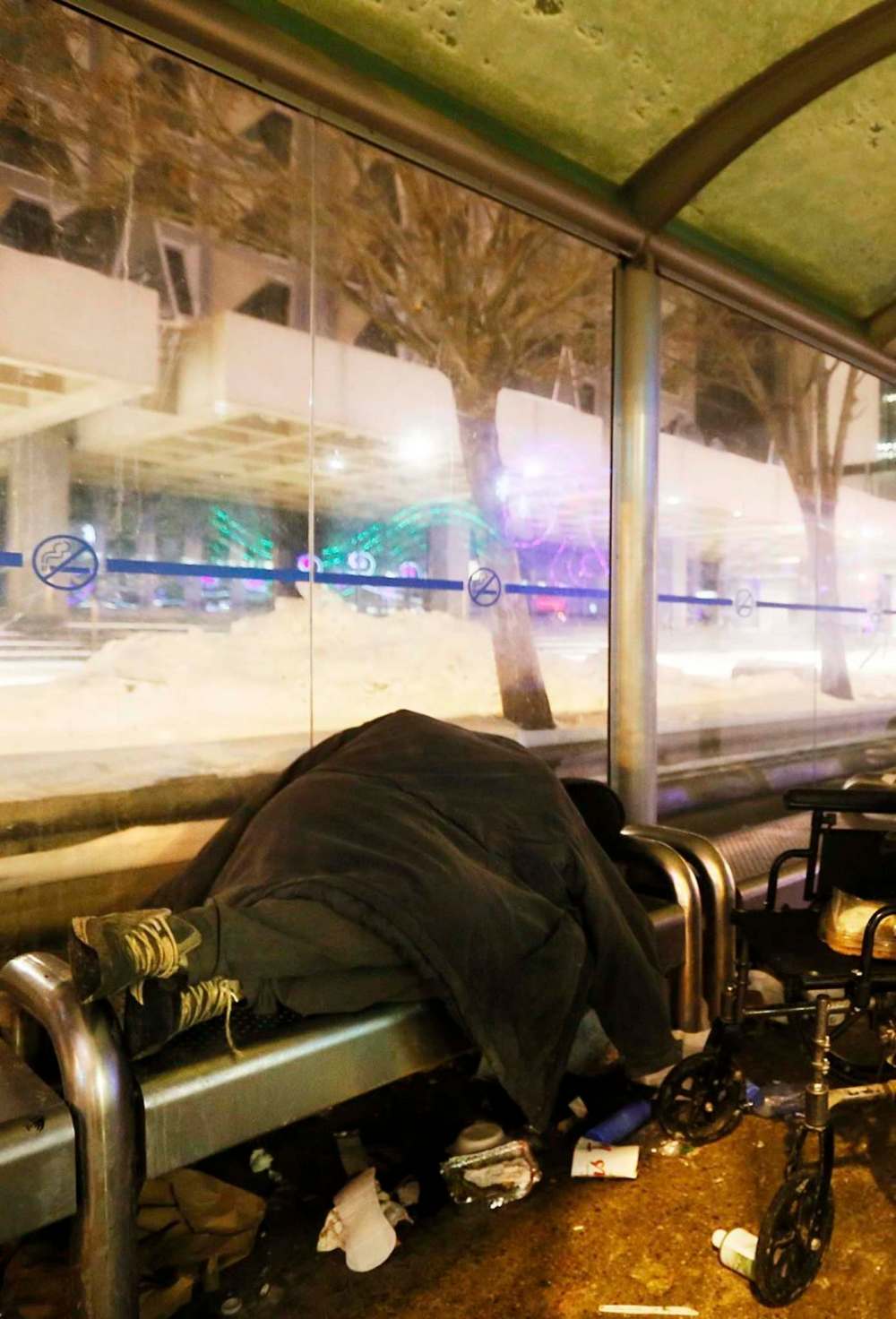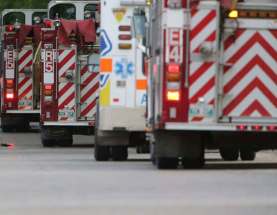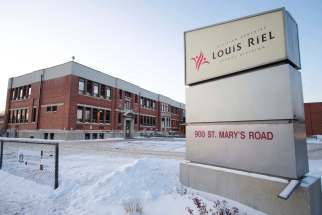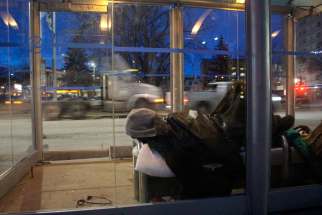Need for social supports visibly on display
Read this article for free:
or
Already have an account? Log in here »
To continue reading, please subscribe:
Monthly Digital Subscription
$0 for the first 4 weeks*
- Enjoy unlimited reading on winnipegfreepress.com
- Read the E-Edition, our digital replica newspaper
- Access News Break, our award-winning app
- Play interactive puzzles
*No charge for 4 weeks then price increases to the regular rate of $19.00 plus GST every four weeks. Offer available to new and qualified returning subscribers only. Cancel any time.
Monthly Digital Subscription
$4.75/week*
- Enjoy unlimited reading on winnipegfreepress.com
- Read the E-Edition, our digital replica newspaper
- Access News Break, our award-winning app
- Play interactive puzzles
*Billed as $19 plus GST every four weeks. Cancel any time.
To continue reading, please subscribe:
Add Free Press access to your Brandon Sun subscription for only an additional
$1 for the first 4 weeks*
*Your next subscription payment will increase by $1.00 and you will be charged $16.99 plus GST for four weeks. After four weeks, your payment will increase to $23.99 plus GST every four weeks.
Read unlimited articles for free today:
or
Already have an account? Log in here »
Hey there, time traveller!
This article was published 02/02/2021 (1779 days ago), so information in it may no longer be current.
The distressing sight of Winnipeg’s downtown bus shelters filled with homeless people is a vivid reminder of social problems that demand both short-term and long-term action.
There’s an immediate need to expand shelter space and open more heated buildings, such as community centres. In mid-winter in Winnipeg, a warm place is not a luxury. It’s essential.
Never has Winnipeg’s homelessness issue been so visible — literally — as it has been during this pandemic winter. The COVID-19 crisis is why an unprecedented number of homeless people are crowded into the glass-walled shelters, putting this city’s serious social problems on display for all passers-by to see.
Before the pandemic, many homeless people remained largely out of public view. At night, there was usually enough room in the city’s shelters to give a cot or a mat to most who needed and sought an indoor place to sleep. Some of those experiencing homelessness chose to sleep outdoors in makeshift communities that, unlike bus shelters, are often concealed under bridges or on well-treed river banks.
COVID-19 changed the terrain for people living rough. As if it wasn’t hard enough already to be homeless, life became even more difficult.
During the day, before the pandemic, they could escape the elements inside places such as the Millennium Library, coffee shops and Portage Place Mall, locations that included washroom facilities.
COVID-19 changed the terrain for people living rough. As if it wasn’t hard enough already to be homeless, life became even more difficult.
Shelters, which have had to comply with physical distancing restrictions, reduced the number of residents they could accept overnight. Also, lockdown restrictions closed the usual places where people used to be able to warm up during the day. As a destination of last resort, bus shelters at least provide a bench and some protection from the wind.
Some homeless people bring their problems with them, which means it isn’t uncommon to see some bus shelters ankle-deep in debris such as empty bottles, food containers and used needles.

It’s a situation that’s acceptable to no one, including those who seek to use bus shelters for their designed purpose but are reluctant to be in close quarters with individuals who display signs of intoxication and are not adhering to pandemic measures such as mask-wearing and physical distancing.
Some help is underway. Main Street Project has a 24/7 van patrol that offers supplies to people using bus shelters as temporary accommodation. Several church groups offer sandwiches and warm clothing. Increased government funding is supporting about 150 new shelter beds at Siloam Mission and Main Street Project. The province has also earmarked $1.5 million for an isolation space for homeless people with COVID-19.
Also encouraging was last week’s revelation that the Millennium Library is hiring a contractor to renovate the library’s lobby to include a “community connection space,” where people, including those who are homeless, can get beverages and snacks, and also access mental-health, addiction and shelter supports. Two community-crisis workers will attend the new site, which library-goers will remember as the former location of the Human Bean Coffee & Tea Shop.
Such stopgap measures are welcome, but it’s also urgently necessary for government to simultaneously direct attention at perennial problems such as a lack of affordable housing and a shortage of counselling and facilities for people dealing with mental illness and addictions.
In the longer term, Winnipeggers shouldn’t forget the heart-rending sight of bus shelters crammed with people who are in dire need. Compassion demands that we remember these images and use them as motivation to propel efforts to address the root causes of homelessness.







